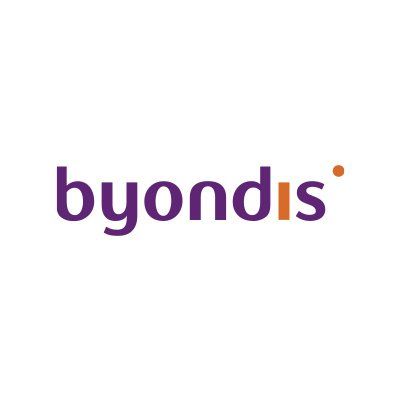预约演示
更新于:2025-05-07
Duocarmazine
更新于:2025-05-07
概要
基本信息
原研机构 |
在研机构 |
非在研机构- |
权益机构- |
最高研发阶段药物发现 |
首次获批日期- |
最高研发阶段(中国)- |
特殊审评- |
结构/序列
分子式C65H75ClN12O17 |
InChIKeyRFQYSAASDBNNDZ-UCGHAGIGSA-N |
CAS号1345681-58-4 |
关联
100 项与 Duocarmazine 相关的临床结果
登录后查看更多信息
100 项与 Duocarmazine 相关的转化医学
登录后查看更多信息
100 项与 Duocarmazine 相关的专利(医药)
登录后查看更多信息
6
项与 Duocarmazine 相关的文献(医药)2025-02-10·Journal of Clinical Oncology
Trastuzumab Duocarmazine in Pretreated Human Epidermal Growth Factor Receptor 2–Positive Advanced or Metastatic Breast Cancer: An Open-Label, Randomized, Phase III Trial (TULIP)
Article
作者: Taylor, Sara ; Bianchi, Giulia ; Klint, Leif ; Cognetti, Francesco ; Petit, Thierry ; Cortes Castan, Javier ; Lindman, Henrik ; Koper, Norbert ; Jeppesen, Nina ; Jing Ying, Tira Tan ; Ponce, Jose Juan ; Martinez, Maria ; Vega Alonso, Estela ; Ladoire, Sylvain ; Jain, Sharad ; Meshad, Michael ; Altena, Renske ; Helsten, Teresa ; Piacentini, Federico ; Dakhil, Shaker ; Luporsi, Elisabeth ; Doni, Laura ; Levitt, Nicola ; Colleoni, Marco ; Morales, Serafin ; Borley, Annabel ; Aftimos, Philippe ; Jerusalem, Guy ; O'Shaughnessy, Joyce ; Orfeuvre, Hubert ; Edlund, Per ; Modiano, Manuel ; Palmieri, Carlo ; Menke-van der Houven van Oordt, Willemien ; Lim, Joline Si Jing ; Kaczmarek, Emilie ; Favret, Anne ; Chaudhry, Madhu ; Denys, Hannelore ; Turner, Nicholas ; Maiello, Evaristo ; Joy, Anil ; Teixeira, Luis ; Stradella, Agostina ; Adamo, Barbara ; Quenel-Tueux, Nathalie ; van den Tweel, Evelyn ; Cazzaniga, Marina ; Quenel Tueux, Nathalie ; Punie, Kevin ; Armstrong, Anne ; Escrivá-de-Romaní, Santiago ; Wedervang, Kim ; Rosenblatt, Paula ; Anton, Antonio ; Bordonaro, Roberto ; Andersen, Jay ; Bianchini, Giampaolo ; Owera, Rami ; Jerez Gilarranz, Yolanda ; Borms, Marleen ; de Vries, Elisabeth G.E. ; Jensen, Jeanette Dupont ; Papadimitriou, Konstantinos ; Oesterholt, Mayke ; Zamagni, Claudio ; Tan, Tira J. ; Cairo, Michelina ; Brufsky, Adam ; Crook, Timothy ; Pluard, Timothy ; Biganzoli, Laura ; Danso, Michael A. ; Ali, Haythem ; Duhoux, François ; Saura, Cristina ; Mowat, Rex ; Abadie-Lacourtoisie, Sophie ; Thirlwell, Michael ; Si Jing, Joline Lim ; Kuip, Evelien ; Lortholary, Alain ; Bonnin, Nathalie ; Song, Xinni ; Harroff, Allyson ; Christophe Thery, Jean ; de Romani Muñoz, Santiago Escriva ; Marchetti, Paolo ; Cobleigh, Melody ; Macpherson, Iain ; Guarneri, Valentina
2022-03-01·Cancer Treatment Reviews1区 · 医学
The evolving panorama of HER2-targeted treatments in metastatic urothelial cancer: A systematic review and future perspectives
1区 · 医学
Review
作者: Patelli, Giorgio ; Siena, Salvatore ; Tosi, Federica ; Ghezzi, Silvia ; Spina, Francesco ; Righetti, Elena ; Sartore-Bianchi, Andrea ; Stabile, Stefano ; Amatu, Alessio ; Zeppellini, Annalisa
2020-09-16·Bioconjugate Chemistry2区 · 化学
A Platform for the Generation of Site-Specific Antibody–Drug Conjugates That Allows for Selective Reduction of Engineered Cysteines
2区 · 化学
Article
作者: Groothuis, Patrick G. ; Coumans, Ruud G. E. ; van der Lee, Miranda M. C. ; Spijker, Henri J. ; Blomenröhr, Marion ; Dokter, Wim H. A. ; Kokke, Bas P. A. ; Timmers, C. Marco ; Schouten, Jan ; Beusker, Patrick H. ; Ariaans, Gerry J. A. ; Ubink, Ruud ; Renart Verkerk, Pascal
29
项与 Duocarmazine 相关的新闻(医药)2025-03-21
+Plus, news about Autolus, MacroGenics and BlissBio:
Akeso bispecific looks promising in cervical cancer:
The China-based biotech
said Friday
that all patients in a Phase 3 cervical cancer trial responded to treatment with a bispecific antibody called cadonilimab. The addition of the PD-1xCTLA-4 bispecific on top of chemoradiotherapy in the COMPASSION-18 study generated complete and partial response rates of 84.8% and 15.2%, respectively. Median PFS was not reached, but the 12-month PFS rate was 74.9%. Cadonilimab is already approved in China for patients with recurrent or metastatic cervical cancer who have not responded to platinum-based chemotherapy.
— Elizabeth Cairns
Pulmatrix to divest assets ahead of merger:
The biotech
will seek buyers
for three of its pipeline programs as well as its iSPERSE platform technology. Pulmatrix in November agreed to a
reverse merger
with Cullgen, which was expected to close this month but is now set to close in the first half of 2025.
— Max Gelman
BioNTech’s option for Autolus CAR-T fizzles out:
The German biotech
allowed
its option to lapse for AUTO1/22, a CAR-T cell therapy in Phase 1 trials for childhood acute lymphoblastic leukemia. Back in
February 2024
, BioNTech paid $50 million in cash and bought $200 million of Autolus’ shares in a deal that granted it access to AUTO1/22. The deal also covered AUTO6NG, a programmed T-cell therapy in early trials in neuroblastoma, and Aucatzyl, which has
since been approved
for an aggressive form of leukemia. BioNTech declined to exercise its time-limited option to AUTO1/22 because of a
pipeline prioritization
, and it lapsed Feb. 8.
— Elizabeth Cairns
MacroGenics shelves prostate cancer ADC:
The company had to stop dosing prostate cancer patients in a Phase 2 trial of its antibody-drug conjugate, called vobramitamab duocarmazine,
in July
.
On Thursday
, it said it would shut down all development and seek a partner for the product, which targets the tumor antigen B7-H3 and delivers a cytotoxic duocarmycin payload. MacroGenics said the results of the trial do not justify any more investment; in the patients treated before dosing was halted, mature median radiographic progression-free survival was 9.5 months with the lower dose and 10 months with the higher.
— Elizabeth Cairns
BlissBio to proceed with ADC on its own:
Eisai had signed an option deal in 2023 to advance a BlissBio program called BB-1701, but last month said in its third-quarter earnings that it would no longer do so. Instead, BlissBio will develop BB-1701 on its own. Eisai had been partnered with liquid biopsy company Angle on development plans, and now Angle is
planning to work
with BlissBio.
— Max Gelman
临床结果免疫疗法细胞疗法临床2期上市批准
2025-03-21
Despite giving up on vobra duo, MacroGenics CEO Scott Koenig, M.D., Ph.D., said that the company still believes B7-H3 has “potential” as a target.\n MacroGenics has made the final decision to abandon work on one of its more advanced antibody-drug conjugates after taking a look at the latest phase 2 data.The biotech had already paused work on vobramitamab duocarmazine (vobra duo) back in November, explaining that it was awaiting progression-free survival (PFS) data from a phase 2 monotherapy prostate cancer trial. Vobra duo has a cleavable peptide linker designed to deliver a DNA-alkylating duocarmycin payload to solid tumors that express B7-H3.CEO Scott Koenig, M.D., Ph.D., explained to investors at the time that the company would make a call on whether to invest further in vobra duo after considering the final PFS data, the therapy’s safety profile and the competitive landscape in the context of the rest of its pipeline.The results are now in, and they show a median radiographic PFS of 9.5 months and 10 months for the 2-mg/kg and 2.7-mg/kg doses, respectively. Safety data “remained consistent with prior data disclosures,” MacroGenics said in its full-year earnings results March 20.“Based on its assessment of the vobra duo safety and efficacy profile and an internal resource and portfolio review, MacroGenics has decided not to pursue further internal development of vobra duo and will instead explore potential alternatives for partnering this program,” the company said in the release.Despite giving up on vobra duo, Koenig said the company still believes B7-H3 has “potential” as a target, adding that the biotech is “pleased with the progress being made with our alternate anti-B7-H3 ADC, MGC026.” MGC026, which is a TOP1i-based ADC, is undergoing a phase 1 dose-escalation study in patients with advanced solid tumors. The biotech also has another ADC in the clinic in the form of MGC028, a TOP1i-based ADC that targets ADAM9 and recently started a phase 1 study in solid tumors.MacroGenics is awaiting a readout later this year for lorigerlimab, a PD-1xCTLA-4 bispecific that the company is testing in a phase 2 prostate cancer trial in combination with docetaxel.“We concluded 2024 with the achievement of multiple clinical development milestones, including the completion of enrollment in the LORIKEET phase 2 study evaluating lorigerlimab in combination with docetaxel in patients with mCRPC,” Koenig said in yesterday\'s postmarket release.“We look forward to building upon this momentum in 2025 as we work to advance our novel pipeline of clinical product candidates, including lorigerlimab, MGC026 and MGC028,” the CEO added.MacroGenics entered the year with $201.7 million in the bank, which the company expects to last into the second half of 2026.

临床1期抗体药物偶联物临床2期
2025-03-21
ROCKVILLE, MD, USA I March 20, 2025 I
MacroGenics, Inc. (NASDAQ: MGNX), a biopharmaceutical company focused on discovering, developing, manufacturing and commercializing innovative antibody-based therapeutics for the treatment of cancer, today provided an update on its recent corporate progress and reported financial results for the year ended December 31, 2024.
“We concluded 2024 with the achievement of multiple clinical development milestones, including the completion of enrollment in the LORIKEET Phase 2 study evaluating lorigerlimab in combination with docetaxel in patients with mCRPC. We look forward to building upon this momentum in 2025 as we work to advance our novel pipeline of clinical product candidates, including lorigerlimab, MGC026 and MGC028,” said Scott Koenig, M.D., Ph.D., President and CEO of MacroGenics. “Finally, we have determined that the results of the TAMARACK Phase 2 study of vobra duo in mCRPC do not support additional financial investment by MacroGenics. We believe the B7-H3 target continues to have potential and are pleased with the progress being made with our alternate anti-B7-H3 ADC, MGC026.”
Updates on Proprietary Investigational Programs
Lorigerlimab
is a bispecific, tetravalent PD-1 × CTLA-4 DART
®
molecule designed to enhance CTLA-4 blockade on dual-expressing, tumor-infiltrating lymphocytes compared to a PD-1/CTLA-4 monoclonal antibody (mAb) combination therapy, while maintaining maximal PD-1 blockade on all PD-1-expressing cells.
Emerging ADC Pipeline.
MacroGenics is developing two clinical and one preclinical antibody-drug conjugate (ADC) molecules that each incorporate a novel, glycan-linked topoisomerase I inhibitor (TOP1i)-based payload developed by the Company’s collaboration partner, Synaffix (a Lonza company). These three candidates are described below.
Updates on Selected Partnered Programs
Update on Vobramitamab Duocarmazine
Vobramitamab duocarmazine (vobra duo)
is an ADC with a cleavable peptide linker designed to deliver a DNA-alkylating duocarmycin payload to solid tumors that express B7-H3.
2024 Financial Results
Conference Call Information
To participate via telephone, please register in advance at this
link
. Upon registration, all telephone participants will receive a confirmation email detailing how to join the conference call, including the dial-in number along with a unique passcode and registrant ID that can be used to access the call.
The listen-only webcast of the conference call can be accessed under “Events & Presentations” in the Investor Relations section of MacroGenics’ website at
https://ir.macrogenics.com/events-and-presentations/events
. A recorded replay of the webcast will be available shortly after the conclusion of the call and archived on MacroGenics’ website for 30 days following the call.
About MacroGenics, Inc.
MacroGenics (the Company) is a biopharmaceutical company focused on discovering, developing, manufacturing and commercializing innovative monoclonal antibody-based therapeutics for the treatment of cancer. The Company generates its pipeline of product candidates primarily from its proprietary suite of next-generation antibody-based technology platforms, which have applicability across broad therapeutic domains. The combination of MacroGenics’ technology platforms and protein engineering expertise has allowed the Company to generate promising product candidates and enter into several strategic collaborations with global pharmaceutical and biotechnology companies. For more information, please see the Company’s website at
www.macrogenics.com
. MacroGenics, the MacroGenics logo and DART are trademarks or registered trademarks of MacroGenics, Inc.
SOURCE:
MacroGenics
抗体药物偶联物财报临床2期临床1期
100 项与 Duocarmazine 相关的药物交易
登录后查看更多信息
研发状态
10 条进展最快的记录, 后查看更多信息
登录
| 适应症 | 最高研发状态 | 国家/地区 | 公司 | 日期 |
|---|---|---|---|---|
| 肿瘤 | 药物发现 | - | - |
登录后查看更多信息
临床结果
临床结果
适应症
分期
评价
查看全部结果
| 研究 | 分期 | 人群特征 | 评价人数 | 分组 | 结果 | 评价 | 发布日期 |
|---|
No Data | |||||||
登录后查看更多信息
转化医学
使用我们的转化医学数据加速您的研究。
登录
或

药物交易
使用我们的药物交易数据加速您的研究。
登录
或

核心专利
使用我们的核心专利数据促进您的研究。
登录
或

临床分析
紧跟全球注册中心的最新临床试验。
登录
或

批准
利用最新的监管批准信息加速您的研究。
登录
或

特殊审评
只需点击几下即可了解关键药物信息。
登录
或

生物医药百科问答
全新生物医药AI Agent 覆盖科研全链路,让突破性发现快人一步
立即开始免费试用!
智慧芽新药情报库是智慧芽专为生命科学人士构建的基于AI的创新药情报平台,助您全方位提升您的研发与决策效率。
立即开始数据试用!
智慧芽新药库数据也通过智慧芽数据服务平台,以API或者数据包形式对外开放,助您更加充分利用智慧芽新药情报信息。
生物序列数据库
生物药研发创新
免费使用
化学结构数据库
小分子化药研发创新
免费使用
